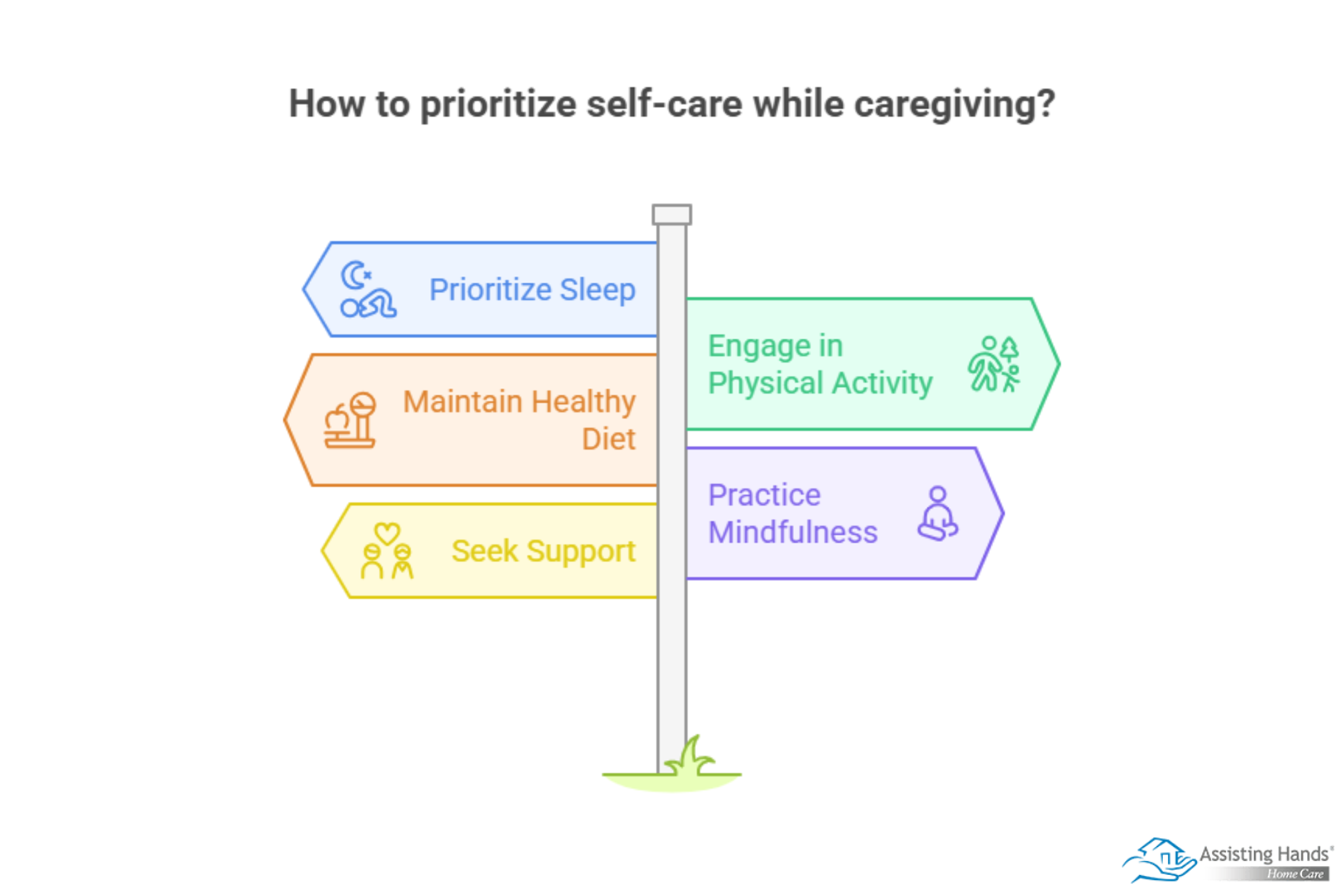
Table of Content
Caregiving is one of the most compassionate and selfless roles a person can take on. If you’re caring for a senior loved one, the demands can feel relentless. But as fulfilling as caregiving can be, it’s vital to prioritize your own wellbeing. Self-care isn’t just beneficial for you. It also ensures you’re able to provide the best care for your loved one.
Recognizing the Challenges of Caregiving
Caregiving comes with a unique set of challenges. It’s not just physically demanding but also mentally and emotionally taxing. Many caregivers juggle multiple roles, from providing physical assistance and managing medical appointments to handling the emotional needs of the people in their care. Burnout is a common reality for caregivers, often brought on by long hours, limited breaks, and the emotional toll of putting other people’s needs above their own.
Acknowledging these challenges is the first step toward recognizing the importance of self-care. Without taking intentional steps to care for yourself, stress can accumulate and lead to exhaustion, illness, or even resentment, which negatively impacts your ability to care for your loved one effectively.
Seniors can face a variety of age-related challenges. Though some families choose to take on the caregiving duties, there may come a time when they need a trusted homecare provider. Families sometimes need respite from their duties so they can focus on their other responsibilities, and some seniors need around-the-clock assistance that their families are not able to provide. Assisting Hands Home Care is here to help.

Why Self-Care Is Essential for Caregivers
Think of the classic airplane analogy: secure your own oxygen mask before assisting others. Self-care is exactly that. If you’re constantly running on empty, you’re less likely to provide the high-quality care your loved one deserves.
Caring for yourself enhances your mental clarity, energy levels, and emotional resilience. Self-care allows you to set boundaries, recharge physically and mentally, and become more adaptable in challenging situations. By taking time to focus on your own health, you’re also setting an example for others who may also be caregiving or relying on you.
Practical Self-Care Tips for Caregivers
It’s easy to assume self-care requires an extravagant vacation or hours of free time. But in reality, self-care can be simple, small actions integrated into your day:
- Prioritize sleep – Sleep is the foundation of health. Strive for 7–8 hours a night, and do your best to maintain a consistent sleep schedule.
- Make time for physical activity – Even a short 30-minute walk each day can relieve stress, boost mood, and increase your energy.
- Eat healthy – Avoid skipping meals or relying on fast food for convenience. Preparing nutritious, balanced meals will fuel your caregiving efforts.
- Practice mindfulness or meditation – A few minutes of mindfulness each day can help you stay grounded and reduce feelings of overwhelm.
- Stay hydrated – It’s simple, but drinking enough water can have a significant impact on your physical and mental performance throughout the day.
Asking for Support and Setting Boundaries
Caregiving doesn’t mean you have to do everything on your own. It’s important to ask for help when you need it. Whether it’s delegating tasks to other family members, hiring professional caregiving assistance, or reaching out to support groups, there are resources designed to lighten your load.
Learning to say “no” is another critical aspect of self-care. Setting boundaries ensures you’re not overextending yourself and allows you to maintain a sense of balance in your life.
Hiring a professional caregiver can allow you to take a break from your caregiving duties to focus on your health and wellbeing. If you’re the primary family caregiver for an elderly loved one and need additional assistance providing high-quality senior care, Jasper Assisting Hands Home Care can help. We are a leading home care agency committed to helping seniors live longer and healthier lives.
The Role of Connection and Community
Isolation is a common side effect of caregiving, especially if you’re dedicating most of your hours to someone else. Maintaining social connections with friends, family, or a support group is essential for your emotional health.
Support groups for caregivers are particularly valuable. They offer a safe space to share experiences, vent frustrations, and learn strategies from others facing similar challenges. Knowing you’re not alone can be a powerful motivator and source of strength.
Family caregivers need to care for their own wellbeing. If you’re caring for an aging loved one and are feeling overwhelmed, consider hiring a professional caregiver to provide respite care. Jasper families who want to prevent burnout can turn to Assisting Hands Home Care. One of our professional caregivers can assist your loved one at home while you take a nap, go to work, run errands, or go on vacation. To create a customized home care plan for your loved one, call Assisting Hands Home Care today.
